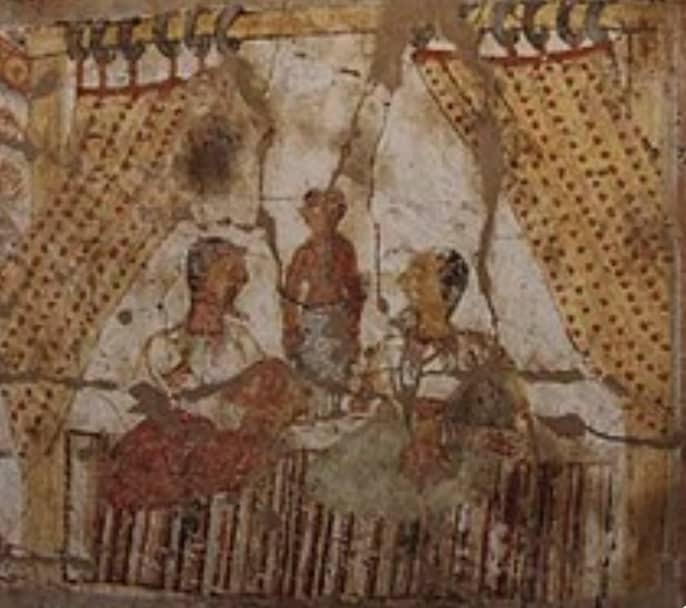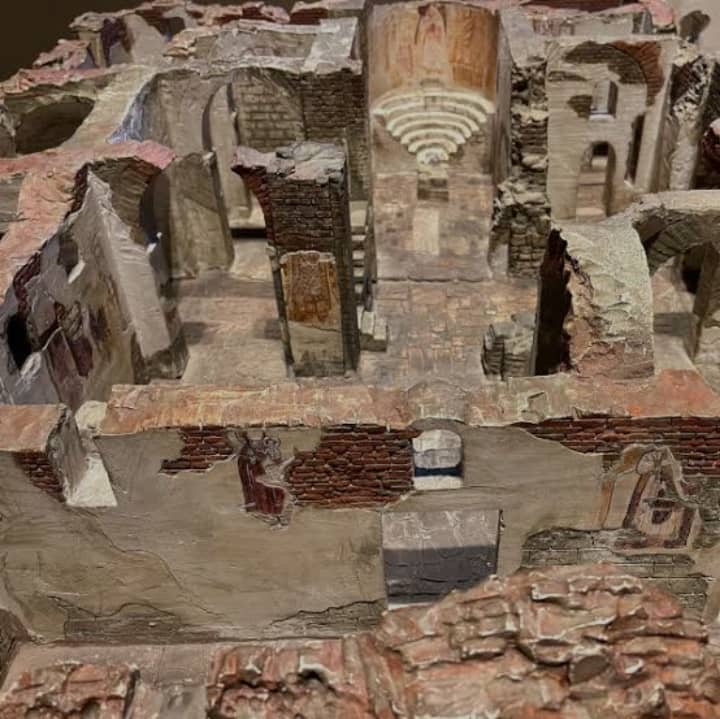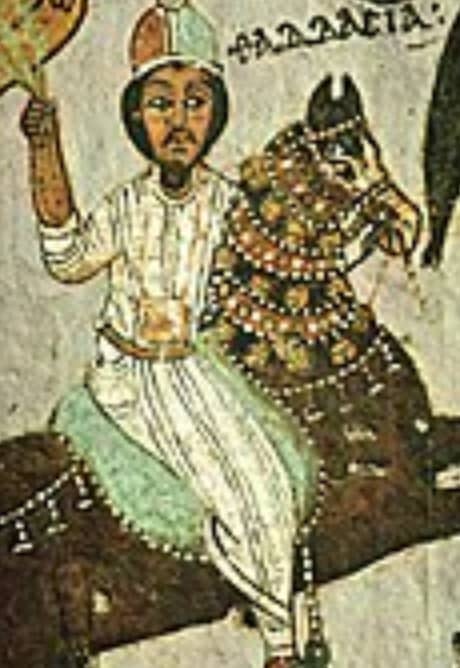
The Kingdom of Makuria was established around the 6th century CE in the Nubian region of present-day northern Sudan. This kingdom flourished along the Nile River after the collapse of the Meroitic Kingdom of Kush.
Makuria emerged as one of the most influential and enduring Christian Nubian kingdoms, alongside Nobatia and Alodia. These Nubian kingdoms resisted Islamic expansion for centuries, with Makuria particularly noted for its strong military and diplomatic acumen.
The capital of Makuria was Dongola (Old Dongola), a bustling and vibrant city located on the banks of the Nile. Founded in the early Christian era, Dongola became the center of administration, culture, and religion for Makuria, with grand churches, royal palaces, and intricate murals. The kingdom’s adoption of Christianity, introduced from Byzantine Egypt, was solidified when the king converted to the faith around 540 CE.
The main languages spoken in Makuria were Nubian, Greek, and Coptic. Nubian served as the lingua franca, while Greek and Coptic were used in religious and scholarly writings, particularly Christian liturgical texts. Christianity in Makuria followed the Coptic Orthodox tradition, which had spread southward from Egypt after the Council of Chalcedon. The monarch of Makuria was considered the protector of the Christian faith in Nubia, and the kingdom was renowned for its grand cathedrals, frescoes, and extensive religious art that rivaled those of neighboring Egypt.
Makuria’s government was a theocratic monarchy, with kings (known as “Makurios”) ruling as both secular and religious leaders. The king was seen as the protector of the Christian faith, responsible for upholding justice, safeguarding the kingdom, and maintaining religious harmony. A council of bishops and noblemen often advised the king, blending theocratic and aristocratic governance. One of Makuria’s most notable kings was King Merkurios (r. 697–710 CE), remembered for consolidating the kingdom’s power and expanding its territories. Another famous ruler, King George I (r. 1155–1190 CE), successfully defended Makuria against repeated Muslim invasions, maintaining the kingdom’s independence through diplomatic and military means.
The economy of Makuria primarily relied on trade goods such as gold, ivory, and livestock. Coinage was rare, and barter systems dominated the economic landscape. However, Makuria had a vibrant trade network connecting it to the Mediterranean, the Red Sea, and Sub-Saharan Africa. Through these routes, the kingdom traded with both the Byzantine Empire and the Islamic world, exporting gold, ivory, and exotic goods while importing silks, spices, and religious manuscripts.
In 652 CE, after a series of failed invasions by the expanding Islamic Caliphate, Makuria negotiated the Baqt, a peace treaty with the Muslims that stood for over 600 years. This treaty was unique in the medieval world, as it allowed Makuria to maintain its Christian identity despite Islamic expansion. In return, the Makurian kings agreed to send an annual tribute of slaves and goods to Egypt. The stability provided by the Baqt enabled Makuria to preserve its Christian traditions while engaging in trade with its Muslim neighbors.
Makuria’s contributions to science and technology were deeply connected to its architecture, agriculture, and military innovations. The Makurians were skilled builders, blending Nubian and Byzantine techniques to construct fortified cities, churches, and waterworks along the Nile. Their advanced knowledge of irrigation and farming along the river allowed them to sustain their population in an otherwise arid environment. The churches of Old Dongola were decorated with intricate frescoes, blending local Nubian elements with Byzantine iconography, influencing later Christian art in the region.

Makuria’s legacy remains evident today, particularly in Sudan’s Nubian communities, who preserve the linguistic and cultural heritage of their ancestors. The kingdom fell into decline by the 14th century, weakened by internal divisions and increased pressure from Muslim rulers. By the time of the Mamluk invasions in the late 13th century, Makuria had largely been absorbed into the expanding Islamic world.

The territories once ruled by Makuria eventually became part of the Islamic kingdoms that emerged in Sudan and Egypt. Today, the region is part of modern-day Sudan, where efforts to uncover and preserve Nubian Christian history continue.